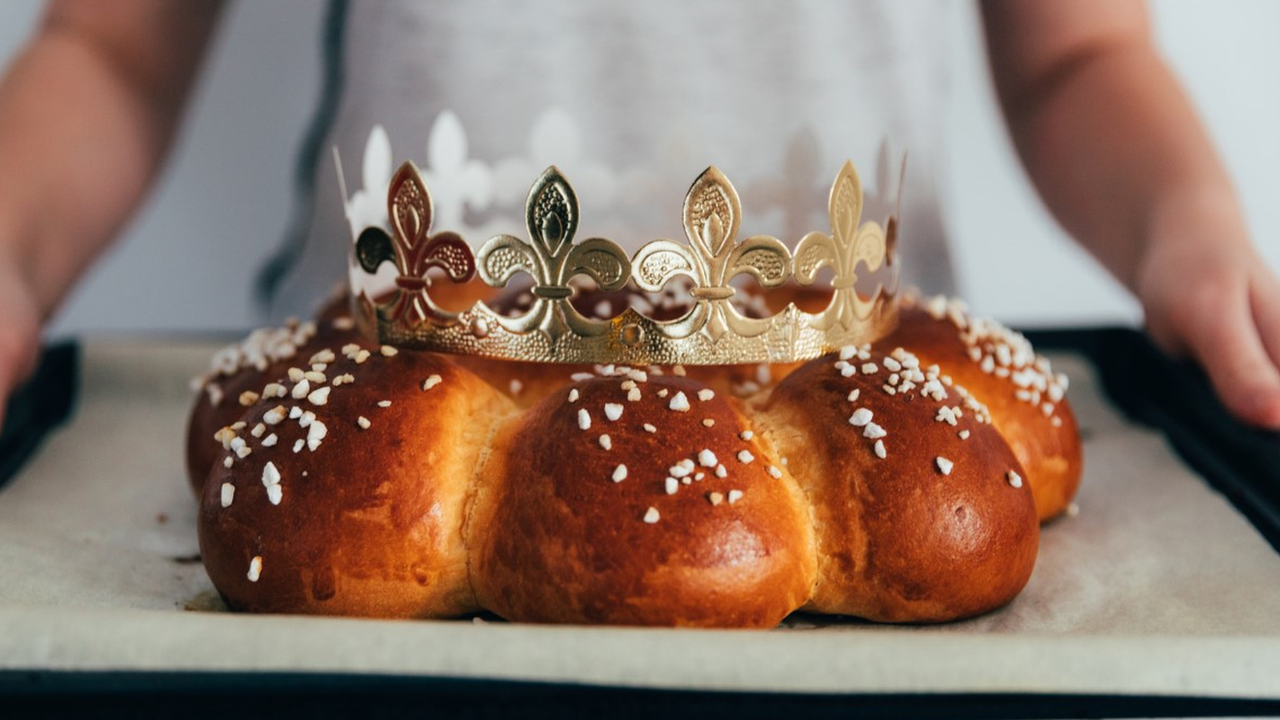Orthodox Christmas: Why do some people celebrate Christmas on 7 January
- Published
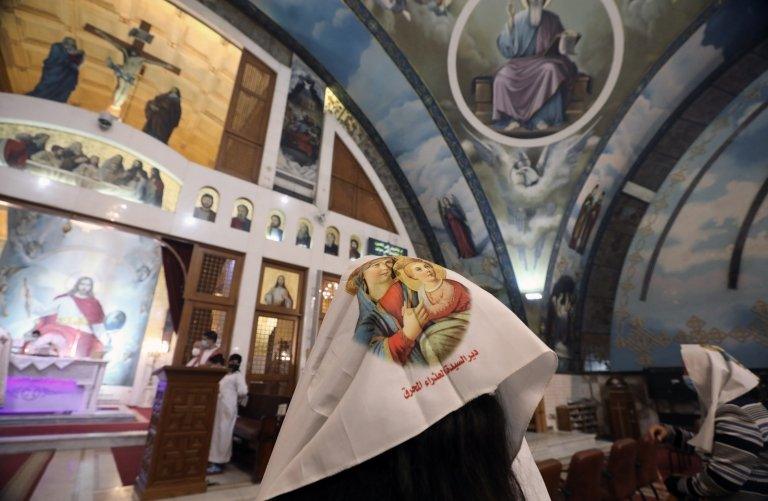
Coptic Christians in Cairo, Egypt celebrating Christmas Eve mass on 6 Jan 2022
At the start of January as you head back to school, the Christmas tree's packed away and mince pies are a distant memory.
But for millions of people around the world, 7 January is Christmas Day.
Orthodox communities in Europe, Africa and the Middle East - which make up more than 12% of all Christians according to the Pew Research Center - celebrate the big day weeks after most of the Western world.
It's because they use a different calendar, called the Julian calendar, to work out when Christmas should be.
Christmas: Why some people are waiting until 7 January to celebrate (2019)
So where has this date difference come from?
It's thought to date all the way back to the year 325 AD, when a group of Christian bishops met to agree a standard date for the church's most important holiday, Easter.
To do so, they decided to base it on the Julian calendar, a calendar which Roman ruler Julius Caesar had adopted in 46 BC - basing a year on the time it takes the Sun to go around the Earth.
However, the calculations overestimated the length of the solar year by about 11 minutes.
As a result, the calendar and the solar year became increasingly out of sync as the centuries progressed.
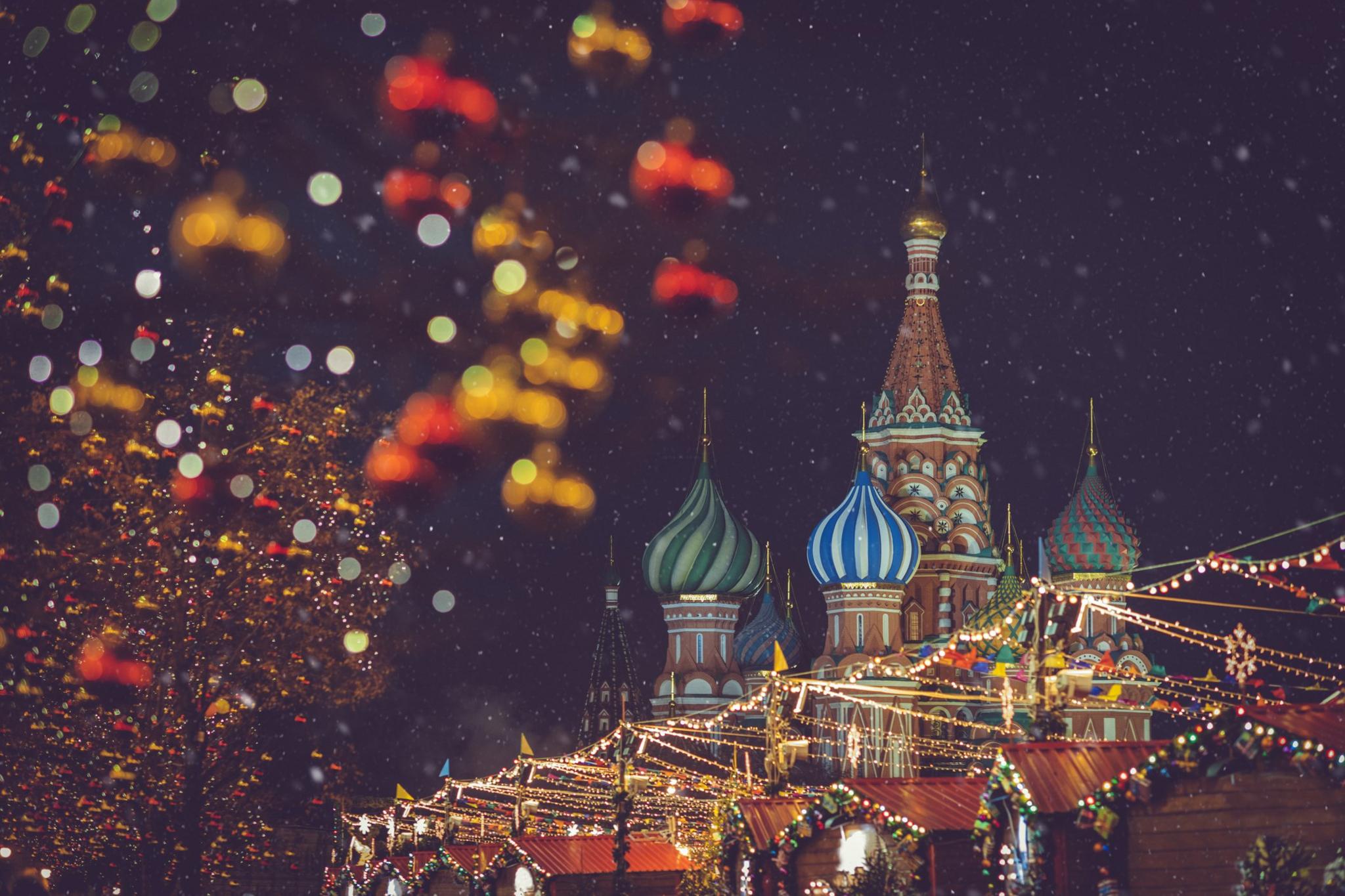
St Basil's Cathedral in Moscow is where many Russian Orthodox Christians will celebrate Christmas
The Gregorian Calendar was created by Pope Gregory in 1582 to fix some of the glitches in the Julian Calendar as astronomy became more accurate.
The majority of the Christian world adopted it and Great Britain changed to the Gregorian calendar in 1752.
However some believers - known as Orthodox Christians - felt this was wrong and stuck with the Julian Calendar.
By 1923, there was a 13-day difference between the two calendars, putting Orthodox Christmas 13 days after December 25, on 7 January.
Orthodox Christmas traditions
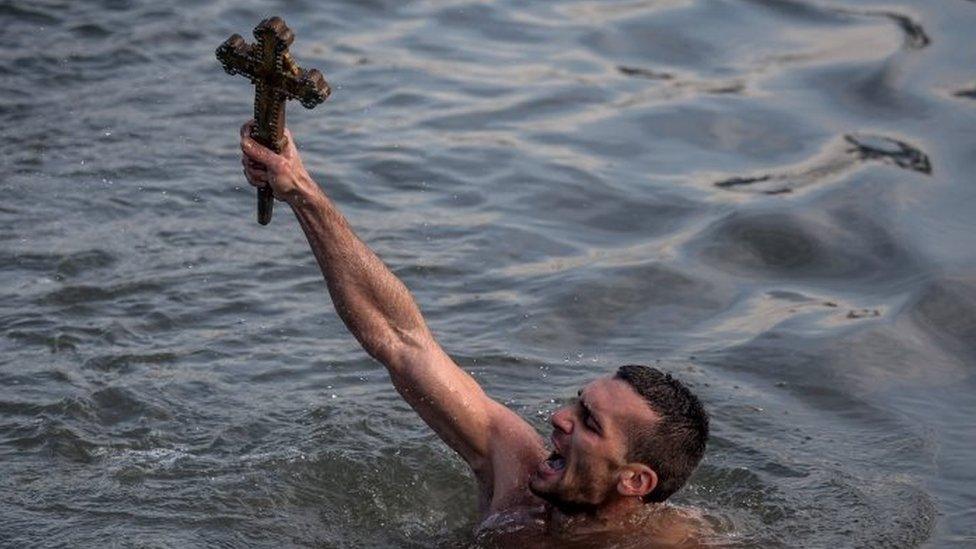
In Greece, some Christians celebrate by jumping into a freezing river to catch a wooden cross
All members of the Orthodox Church begin a period of fasting 40 days prior to Christmas. No meat is allowed during the entire fasting period.
After Christmas Eve mass on January 6th, many people will gather with their family and friends to host a giant feast to celebrate the last day of their fast.
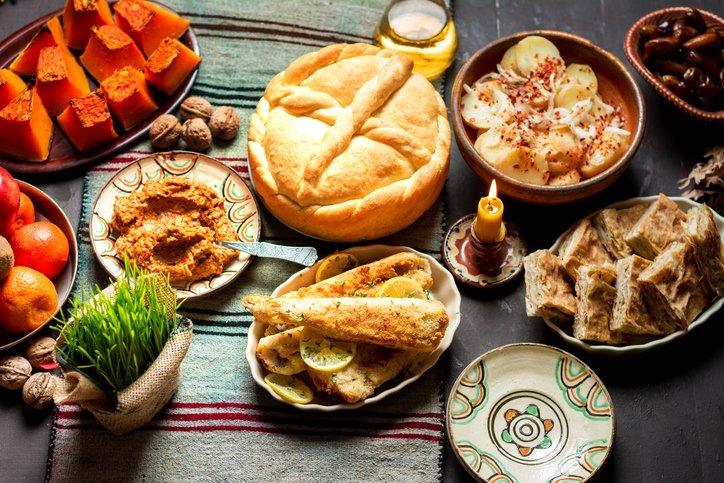
People in the Ukrainian and Russian Orthodox faiths will have 12 traditional dishes during Christmas Eve, representing Christ's apostles - they can include cabbage soup, baked apples, vegetable stew and bread.
A well-known dish is Kutia or kutya, which is with wheat berries or grains, honey and poppy seeds. It is meant to represent family and a good year of harvest.
Other Orthodox traditions in Ukraine include decorating the house and dinner table with a sheaf of wheat called a didukh, taken from the autumn harvest.
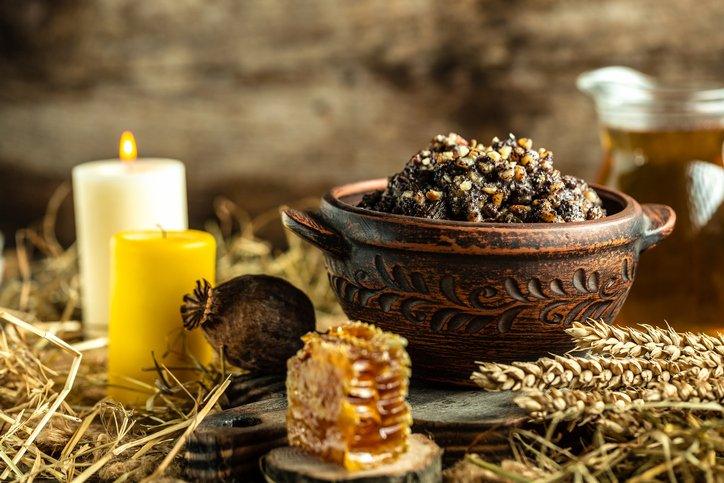
- Published13 January 2022

- Published6 January 2022

- Published7 December 2023
